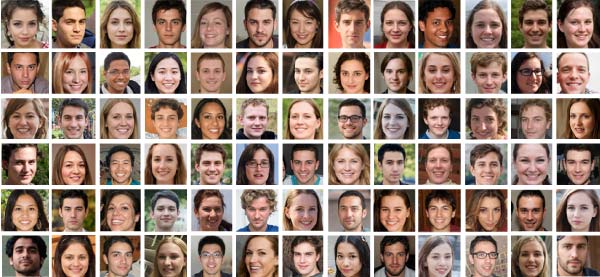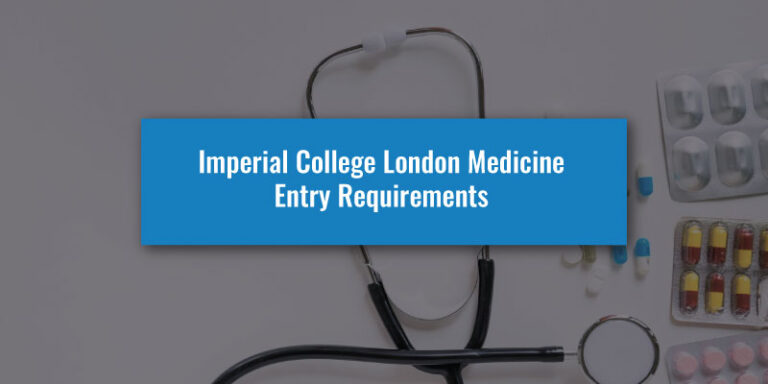Pearson VUE and UCAT have announced that the Abstract Reasoning subtest of the University Clinical Aptitude Test (UCAT) will be removed from the 2025 sitting of the test.
This will impact how thousands of medicine applicants will prepare for the UCAT, so it’s important. understand exact what’s happening to the exam. In this guide, we’ll be exploring exactly that, answering your most pressing questions to ensure you’re ready to take on the UCAT in 2025
Abstract Reasoning Removed From The UCAT 2025
It was announced in December 2024 that the Abstract Reasoning subtest of the UCAT will be removed for the 2025 sitting. This means applicants will now only need to complete 4 subtests. The timings and question totals will be adjusted in order to adapt the test, below is the new structure for the UCAT compared with the previous structure:
| Subtest | New Structure | Old Strucutre |
|---|---|---|
| Verbal Reasoning | 44 Questions – 22 Minutes | 44 Questions – 21 Minutes |
| Decision Making | 35 Questions – 37 Minutes | 29 Questions – 31 Minutes |
| Quantitative Reasoning | 36 Questions – 26 Minutes | 36 Questions – 25 Minutes |
| Situation Judgement | 69 Questions – 26 Minutes | 69 Questions – 26 Minutes |
| Abstract Reasoning | NA | 50 Questions – 12 Minutes |
As you can see, the test will now last for just 111 minutes rather than 115 minutes (not including instruction times). Although there are now six more questions in Decision Making, applicants will be answering 44 questions less than in previous years thanks to the removal of AR. This will give you more time per question in the sections that have been changed, although the changes are minor.
This will likely come as a relief to many applicants, as Abstract Reasoning has been the most unpopular subtest for many over the years. Due to its unusual question style and very tight time limit, many applicants struggled to score highly in this subtest despite performing well in the others. This means we will likely see an increase in the average overall score for the cohort in 2025 and beyond.
This is the latest in a series of major changes to the medicine admissions process, which has already seen the removal of the Biomedical Admissions Test (BMAT) – an alternative exam used by several UK medical schools – and the subsequent move from said medical schools to the UCAT, making it the only admissions test for undergraduate medicine and dentistry.
In 2025, applicants will also experience major changes to the Personal Statement writing process, as this is being changed to a question-based format.
Important Questions About UCAT 2025 Changes
Let’s answer some important questions you may have regarding these changes:
Why Is Abstract Reasoning Being Removed From The UCAT?
UCAT states that the subtest was removed as a part of its initiative to add value to the UK medical school selection process. The subtest was said to have a lower predictive validity than the other parts of the exam, which researchers have shown is getting consistently weaker with each passing admissions cycle.
As well as this, the report claims that the test is “highly coachable”, claiming that candidate performance has improved over the years while response times have decreased.
With this change, UCAT hopes to spend more time fine-tuning the remaining subtests to ensure the test is as effective as possible.
How Will This Change Affect My UCAT Preparation?
Your UCAT preparation will be impacted in a few minor ways, though none of these will be too major. Most importantly, you should no longer practice Abstract Reasoning questions, as these will no longer be relevant to the test.
Beyond this, though, you will need to understand the changes facing the rest of the test. Timings and question totals for the remaining four subtests have been changed, but pre-existing practice papers or question banks may not have adjusted to this change.
When using practice tests, be wary that they may be operating under the old time restrictions and question totals. Where possible, try to customise practice sessions with the correct amount of questions while adhering to the new time limit.
UCAT itself has confirmed that its selection of official practice tests will be updated on March 1st 2025 to reflect the new format. Here at UniAdmissions, we will endeavour to update all of our UCAT resources as fast as possible to ensure our students are fully prepared for the new test.
Will My UCAT Score Be Affected?
UCAT results from previous years consider all four primary subtests (Situation Judgement uses a different mark scheme, so is excluded), so the overall scores will look different in 2025 when AR is not included. Before, the maximum score for the UCAT could go as high as 3600, but this has now been reduced to 2700, meaning the conversion method from raw marks to final score likely will not change significantly.
However, UCAT scores will generally be lower when compared to previous years, so thresholds and score reporting will be adjusted in line with this change, so your score will not be negatively impacted by the removal of the subtest
Previous UCAT changes
This isn’t the only time the UCAT has seen major changes. The last update was in 2022, which saw the following changes:
- Abstract Reasoning: the number of questions has decreased by five, from 55 to 50, and candidates will have one less minute to answer the section.
- Quantitative Reasoning: there have been no changes to the questions, but candidates will have one more minute to answer this section.
- Situational Judgement: this is where the biggest change has happened. The number of questions has increased from 66 to 69 but the time allowed for the section remains the same.
- Situational Judgement: there is also a new question type in Situational Judgement.
Maximise your UCAT score through effective UCAT preparation.
The UCAT exam is a vital component of your Medicine application so scoring highly can mean the difference between an offer or rejection. At UniAdmissions, we are experts at boosting your UCAT score and maximising your chances of gaining a place to study Medicine.
Discover our UCAT Programme by clicking the button below to enrol and triple your chances of success.
Quantitative Reasoning Changes
In previous years, candidates had 24 minutes to answer the 36 questions that make up the Quantitative Reasoning section.
However, this has been increased to 25 minutes to answer the same number of questions. Candidates will now have about 41.5 seconds to answer the questions as opposed to the 40 seconds previously.
The intention of this is to reduce the overall time pressure in both the Admissions Test and the QR section.
With such a marginal change, candidates should not significantly alter their timing strategy for the QR questions.
However, candidates should be aware that they may have more ‘luxury’ time at the end of the section that will allow them to return to any questions they flagged for review.
Situational Judgement Changes
In what is the most significant change to the UCAT is in the Situational Judgement section. The number of questions has been increased from 66 to 69.
Despite the increase of the section by three questions, the timing of the section will not change meaning candidates will still have 26 minutes to tackle the SJT section.
This means candidates will have slightly less time to answer the questions, averaging one second less per question.
However, candidates will face a new type of question which is likely to be more time-consuming than others in the subtest so students should not significantly alter their timing.
New Situational Judgement Question Format
The brand new question format is similar to previous SJT questions, however, the structure and components will vary.
Building on the popular ‘Importance’ questions of the SJT, candidates will be relieved to learn there is not much to learn about the question format.
The new question type will typically give candidates three factors and ask them to identify the most and least important of the selection relating to a given scenario.
It is expected that there will be a minimum of two to three questions of this style.
Conclusion
We hope this guide has been useful to you and you now have a better understanding of what the UCAT will look like in 2025. Remember to start your preparation early to be fully prepared for the test. Our Medicine Programme offers a full range of fantastic support for all areas of the medicine application, so take a look if you want to triple your chances of success.
Good luck in your UCAT!
Looking to score highly on the UCAT?
The UCAT exam is a vital component of your Medicine application so scoring highly can mean the difference between an offer or rejection. At UniAdmissions, we are experts at boosting your UCAT score and maximising your chances of gaining a place to study Medicine.
Discover our UCAT Programme by clicking the button below to enrol and triple your chances of success.








